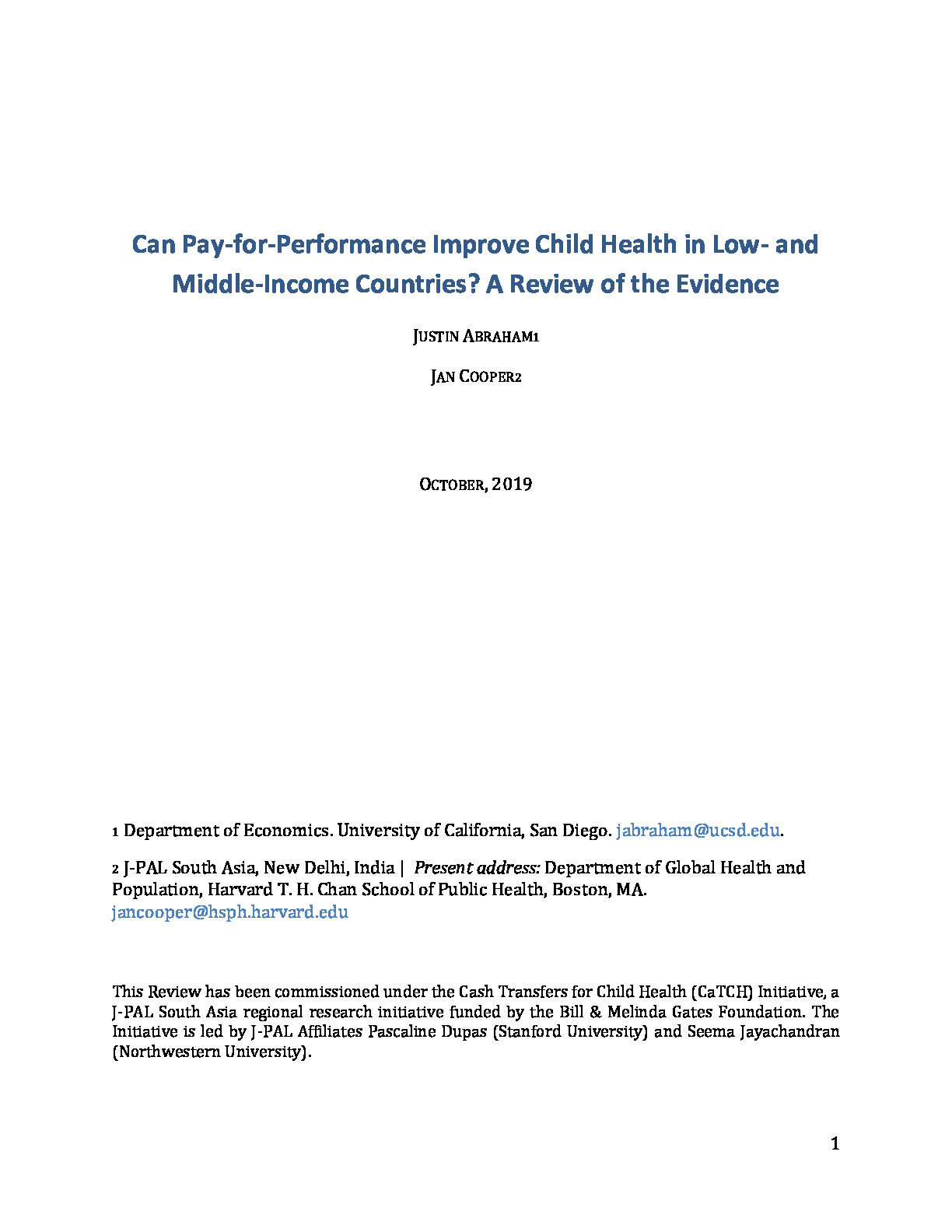Can Pay-for-Performance Improve Child Health in Low- and Middle-Income Countries? A Review of the Evidence
To draw policy-relevant conclusions about the impact of P4P programs, our paper updates previous literature reviews and focuses solely on experimental and quasi-experimental evidence that can speak to the causal effect of P4P on healthcare delivery and the health outcomes of children in low- and middle-income countries.
First, we summarize the impact of P4P on malnutrition, anemia, childhood morbidity, and infant mortality. We link these results to evidence on the provision of services including antenatal care, institutional deliveries, immunization, and nutrition supplementation. Second, we draw on a conceptual framework and use our evidence base to motivate a discussion on the effects of various design features. Finally, we identify opportunities for future research on the application of P4P for healthcare providers. We find strong evidence that P4P can work to reduce malnutrition among children under five. Evidence from India, Indonesia, Rwanda, and the Philippines suggests that incentivizing nutrition-targeted tasks has short-term positive impacts on weight-for-age as proxies for nutrition status. These results can be traced, in part, to successfully motivating health workers to provide supplementation services, which are inexpensive and relatively simple to implement.
We find strong evidence that P4P can work to reduce malnutrition among children under five. Evidence from India, Indonesia, Rwanda, and the Philippines suggests that incentivizing nutrition-targeted tasks has short-term positive impacts on weight-for-age as proxies for nutrition status. These results can be traced, in part, to successfully motivating health workers to provide supplementation services, which are inexpensive and relatively simple to implement.
